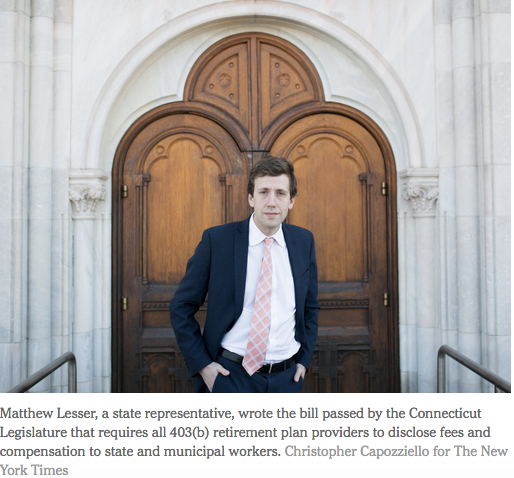Public schoolteachers and other education workers in Connecticut should soon have an easier time figuring out how much they are paying for their retirement investments.
These costs should not be a mystery, yet they are often difficult to find and even more challenging to understand, particularly for employees in public schools. These workers are commonly sold expensive and complex investments inside their 403(b) plans, which are retirement accounts offered to educators, nonprofit employees and many hospital workers. Most of these plans leave employees more vulnerable because they are more lightly regulated than their better-known counterparts, 401(k) accounts.
A bill passed by the Connecticut Legislature tries to improve this situation by requiring all 403(b) retirement plan providers to disclose fees and compensation to state and municipal workers. The legislation, which unanimously passed in the state Senate last week, is headed to Gov. Dannel P. Malloy for his signature.
The bill was written by Matthew Lesser — a Connecticut state representative who leads the House banking committee — after he read a series of articles published in The New York Times that documented the problems in 403(b) plans.




